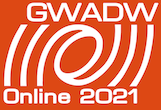Speaker
Description
The Laser Interferometer Space Antenna (LISA) will be the first space-based gravitational wave observatory. LISA is a high precision interferometer in space with an arm length of 2.5 million km. The optical benches are made by bonding silicate glass components to an ultra-low-expansion glass ceramic which does not allow rearrangements of the optical components. Since the development, implementation and testing of the LISA instrument is a major undertaking a need for additional picometer-stable optical configurations might arise to test specific components, methods or noise couplings.
To prepare for the need of such optical ground support equipment in the future, we experimentally study two technologies: The first one simplifies and quickens the construction of picometer-stable interferometers and enables us to even rearrange optical components to other topologies. The second technology tests an approach to provide portable and comparably cheap laser frequency references for 1064nm laser light that are required to achieve LISA-level phase fidelity and can also be used for dilatometer-type experiments, such as temperature behavior tests of critical opto-mechanical components. Here an athermal glass etalon is probed as laser frequency reference for 1064nm light.
Central to this project is the set-up of a test facility with a vacuum system, laser preparation and readout electronics.

